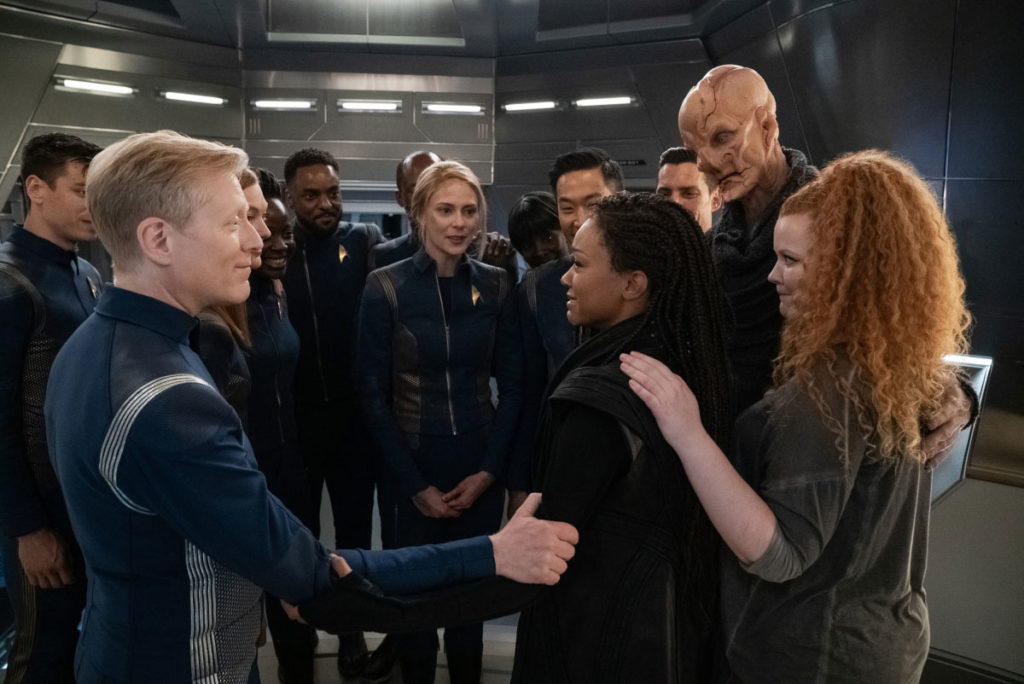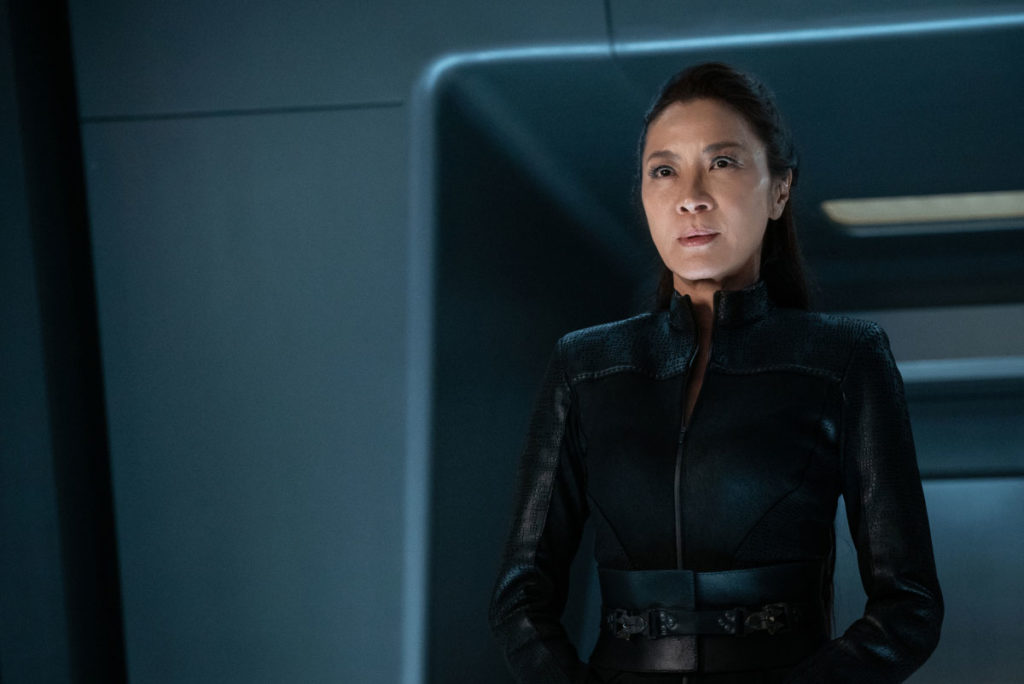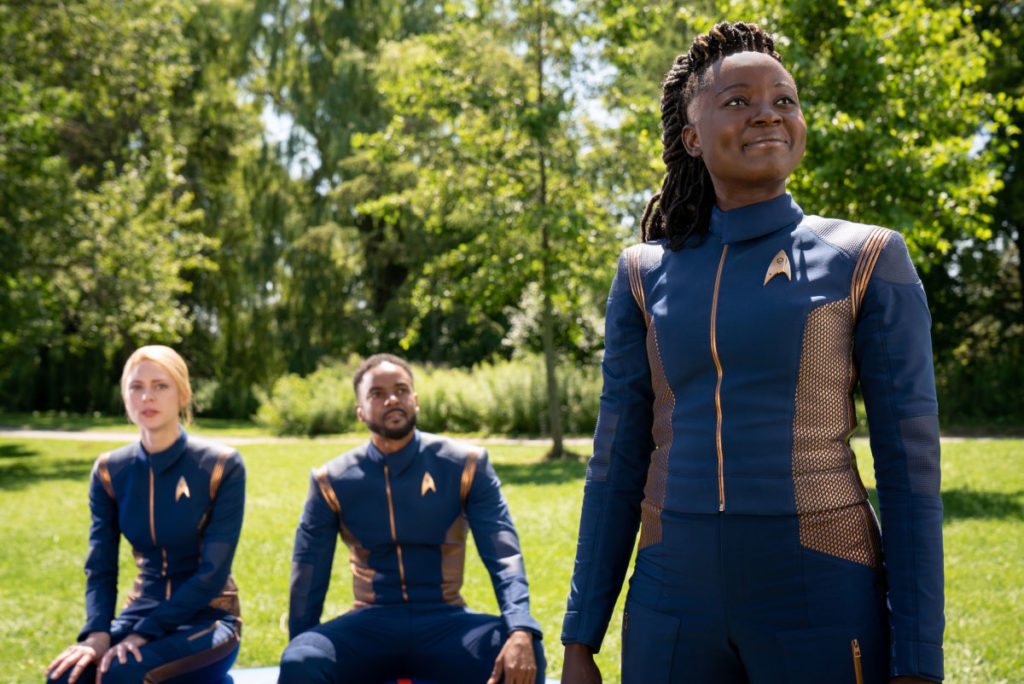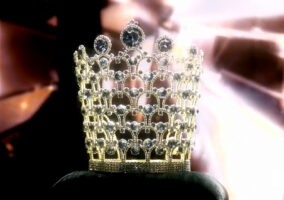
We figured the third episode of the new season of Star Trek: Discovery would be a good time to check in on the show and talk about how things are going now that the status quo has been shaken up (again) and the crew (or the parts of it that get speaking roles) of the titular ship have landed in the 32nd century. During the show’s rocky run, we’ve always defended it from some of the most commonly stated complaints among the show’s fandom and some critics; that it didn’t slot neatly into the franchise’s continuity or that it didn’t understand the franchise’s underlying ethos, neither of which we agreed with. That doesn’t mean we’ve never had criticisms or complaints, however. We chatted a little bit about this season’s premiere on our podcast, noting with a harrumph or two that the new somewhat lawless, Federation-free galaxy the show has landed in made it feel more like a Star Wars spinoff than a Star Trek show. Watching this third episode, in which Michael Burnham is reunited with her crewmates after a year has passed between episodes, something else struck us about why Discovery, which is still entertaining as hell to us, often doesn’t quite feel like a Star Trek show. It’s not because of its love of clothing the cast in black leather or letting them say “shit” now and then. It’s not because Discovery doesn’t understand Trek lore or the Trek ethos. Look, you’re just going to have to let us make a terrible pun that wound up in our notes from watching this third episode, because it’s the point we’re trying to make here. Star Trek: Discovery needs to have more stories about warp cores and fewer about emotional cores.
It’s good that the show didn’t keep its cast separated for too long and we were happy to see them all reunited, but that doesn’t mean the weepy reunion scenes felt particularly earned. If there’s one overriding issue with Discovery, it’s not that it’s too dark to be Star Trek but that it relies far too much on melodramatic, slow-motion emotional scenes in its storytelling. That may seem like an odd thing to criticize a show for, since emotions are at the heart of all good stories, but if there’s one through-line that has always connected the various iterations of Star Trek, it’s that it kept a coolness about itself even as it defined and portrayed some friendships and relationships that wound up becoming legendary: Kirk and Spock, Picard and Data, Janeway and Seven, Will and Deanna, even Odo and Quark or Bones and Spock – Trek friendships, rivalries and romantic relationships have always had a certain coolness to them – not detachment or coldness, just not prone to a lot of big emotional displays. Even what must be considered one of the most emotional scenes in all of Star Trek, Spock’s death and funeral in The Wrath of Khan, was such a tear-jerker precisely because everyone in them struggled to hold it together, not because they were all weeping and hugging in slow motion. These are, after all, the stories of scientists and military personnel, many of whom aren’t even human.

Not to dredge this old rivalry up, but Trek’s emotional coolness is one of the things that defines it apart from its cousin Star Wars, which depicts a universe in which emotions not only tend to run hot, but tend to be the main theme and driver of almost all of the stories. Sure, the Jedi way is to not give into one’s emotions, but most of the main cinematic story has been about potential Jedi struggling with, and more or less succumbing to, their emotions while everyone around them screams and yells, fights and kisses. Star Wars is high romantic melodrama in a classic clash of good vs. evil. Star Trek is about scientists and diplomats solving problems around control panels and conference tables. Star Wars is about a galaxy at constant war while Star Trek is about the constant pursuit and maintenance of peace.
Not that you have to make such binary comparisons. You can compare Trek to other cousins like Battlestar Galactica or Babylon 5 – even the Alien franchise, which got increasingly frantic with each new entry – and note how that same emotional coolness is one of the things that defines it apart from other space-bound science fiction franchises. It’s no coincidence that some of the most popular Star Trek characters across the franchise were either emotionless androids, logic-obsessed aliens, or humans who had their humanity forcibly removed against their wills. The story of a cold or emotionless character learning about humanity and coming to an understanding of through the exploration of emotion is at the heart of the franchise. To be fair, the recent Star Trek: Picard also had a much deeper emotional core than we’re used to from a Star Trek show (and one of the most maudlin scenes in Trek history during its season finale) but at least it felt somewhat earned because the majority of the audience had likely spent decades with the character – and also because Patrick Stewart is a world-class actor.

To be fair, there are big emotional scenes in Star Trek franchise history and characters like Kirk or Worf or Bones or Kira Nerys are defined (and often meet strong opposition from allies because of) their tendency to run hot, but the ethos and type of story that binds all of Star Trek is one that places the utmost importance on science, diplomacy and problem-solving; all three of which are defined by a sense of detachment. Also in the interest of fairness, Discovery, despite a decent amount of fan outcry to the contrary, does a very good job of describing and reinforcing the basic tenets of Starfleet and Federation ethics and philosophy. In fact, this latest episode was a classic “The crew comes across an unstable and dangerous political situation it knows nothing about but solves within an hour based on their superior Federation ethical code,” with the twist being that the alien culture involved was actually Earth in the 32nd century. That’s a worthy story for Star Trek and, not coincidentally, the best parts of this episode focused on it. Discovery understands what Star Trek is about and does a better job of conveying it than its detractors give it credit for, but as much as we believe any 21st century-produced Star Trek has to look and sound like 21st century television (meaning season-long storylines, emotional arcs for the characters and tech that doesn’t look like 1966), we really wish they’d pull back on the tearful declarations of love and support among the cast members. Stylistically, it feels wrong and as this episode underlined, often unearned.
Still love the show and the cast, though. We’re happy to be back in this world and the new status quo finally frees the show up from the continuity issues that plagued it from its conception.
Netflix Releases a Maggie-Heavy Trailer for Season 4 of “The Crown” Next Post:
Halloween Goddess Elvira for Vogue Magazine
Please review our Community Guidelines before posting a comment. Thank you!



